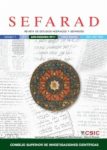
SEFARAD
Scope & Guideline
Illuminating the Rich Tapestry of Cultural Studies
Introduction
Aims and Scopes
- Sephardic Literary Studies:
The journal covers a wide range of literary works produced by Sephardic authors, including analyses of themes, styles, and the socio-historical contexts of these texts. - Historical Contextualization:
Research often delves into the historical circumstances surrounding Sephardic communities, including their experiences during the Inquisition, migration, and cultural exchanges in various regions. - Linguistic Analysis:
A significant focus is placed on the study of Judeo-Spanish and other dialects, examining their structures, evolution, and the influence of surrounding languages and cultures. - Cultural and Religious Intersectionality:
The journal seeks to understand the interactions between Sephardic Jews and other cultural or religious groups, particularly through studies on conversions, intermarriages, and community dynamics. - Manuscript Studies and Textual Criticism:
SEFARAD publishes critical editions and studies of historical manuscripts, emphasizing their linguistic, religious, and cultural significance. - Gender Studies in Sephardic Contexts:
Recent articles reflect an interest in gender dynamics within Sephardic literature and history, exploring the roles and representations of women.
Trending and Emerging
- Interdisciplinary Approaches to Sephardic Studies:
There is a noticeable trend towards integrating methodologies from various disciplines, such as anthropology, sociology, and cultural studies, to enrich the understanding of Sephardic history and identity. - Exploration of Judeo-Arabic and Other Dialects:
Research focusing on Judeo-Arabic and its variants has gained prominence, highlighting the linguistic diversity within Sephardic communities and their historical significance. - Digital Humanities and Sephardic Studies:
Emerging interest in the application of digital humanities tools for analyzing Sephardic texts and manuscripts is evident, enabling new forms of scholarship and accessibility. - Contemporary Sephardic Identity:
Recent papers increasingly explore themes related to modern Sephardic identity, including diaspora experiences, cultural revival, and the impact of globalization. - Gender and Sexuality Studies:
There is a growing scholarly focus on gender and sexuality within Sephardic literature and historical contexts, reflecting broader trends in humanities research.
Declining or Waning
- Traditional Historical Narratives:
There appears to be a decline in the focus on traditional historical narratives that primarily emphasize major events in Sephardic history, as newer studies increasingly adopt interdisciplinary approaches. - Inquisition Studies:
Although still relevant, the frequency of papers solely dedicated to the Inquisition is decreasing, suggesting a move towards broader thematic explorations rather than isolated historical events. - Studies on Sephardic Influence in Non-Jewish Contexts:
Research examining the influence of Sephardic culture on non-Jewish communities has become less prevalent, potentially overshadowed by more focused studies on internal community dynamics. - Classic Sephardic Folklore:
Interest in traditional folklore and oral histories has lessened, with a growing emphasis on modern interpretations and contemporary cultural expressions. - Linguistic Purism:
There is a noticeable reduction in studies promoting linguistic purism in Judeo-Spanish, as more scholars embrace the hybrid nature of the language and its evolution.
Similar Journals
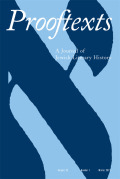
PROOFTEXTS-A JOURNAL OF JEWISH LITERARY HISTORY
Connecting Scholars Through Jewish Literary InsightsPROOFTEXTS: A Journal of Jewish Literary History, published by Indiana University Press, is a premier academic journal dedicated to the exploration and critical analysis of Jewish literature and its historical contexts. With an ISSN of 0272-9601 and an E-ISSN of 1086-3311, this journal not only serves as a platform for innovative scholarship but also aims to foster dialogue among scholars in the fields of Cultural Studies, Literature and Literary Theory, and Religious Studies. As evidenced by its 2023 Scopus ranking—place within the third quartile in Cultural Studies and Religious Studies, and second quartile in Literature and Literary Theory—PROOFTEXTS stands out as a significant contributor to academic literature, attracting a diverse readership of researchers, professionals, and students alike. The journal’s commitment to open access is limited, thus ensuring a selective dissemination of high-quality research materials. Researchers are encouraged to contribute their insights and engage with the intricate narratives that shape Jewish literary heritage from 2002 to its convergence during select years, highlighting the ongoing evolution and relevance of this vibrant field. For in-depth understanding of Jewish literary history, PROOFTEXTS remains an indispensable resource.
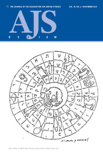
AJS Review-The Journal of the Association for Jewish Studies
Advancing Jewish Studies through Interdisciplinary DialogueAJS Review - The Journal of the Association for Jewish Studies is a leading academic journal published by the University of Pennsylvania Press, dedicated to advancing scholarship in Jewish studies. With its ISSN 0364-0094 and E-ISSN 1475-4541, the journal offers a rich compendium of research from various disciplines, including cultural studies, history, literature and literary theory, and religious studies. Recognized within the Q2 and Q3 quartiles across multiple categories in 2023, AJS Review provides an esteemed platform for academics to disseminate innovative ideas and engage with critical issues relevant to Jewish history and culture from 1976 to 2024. Although not an open-access journal, it ensures that high-quality, peer-reviewed articles are available to a global audience, enabling researchers, professionals, and students to foster deeper insights into Jewish narratives and heritage. By promoting interdisciplinary dialogue, AJS Review is integral to the academic community, offering valuable contributions to our understanding of Jewish studies and its broader implications.

JEWISH SOCIAL STUDIES
Cultivating rigorous research in the humanities of Jewish Studies.Jewish Social Studies is a prominent peer-reviewed journal published by Indiana University Press, dedicated to advancing the field of Jewish scholarship through interdisciplinary exploration and critical inquiry. With an ISSN of 0021-6704 and an E-ISSN of 1527-2028, this journal has become a vital resource for researchers and scholars, achieving Q2 rankings in both History and Religious Studies, as well as strong standings in Anthropology and Cultural Studies. The journal bridges the gaps between diverse academic disciplines, focusing on the multifaceted dimensions of Jewish life, culture, and history, making it essential reading for anyone engaged in the study of Judaism. Although it does not currently offer Open Access options, the journal promotes a wealth of rigorous research, critical perspectives, and in-depth analyses that contribute significantly to the understanding of Jewish Studies from 1975 to the present day, with ongoing issues scheduled until 2024. With an established audience of scholars, professionals, and students, Jewish Social Studies remains a leading platform for intellectual discourse and scholarly exchange in the humanities.

Images
Engaging with the Complexity of Cultural ExpressionsImages, published by BRILL, serves as a significant academic platform within the realms of Cultural Studies, History, Religious Studies, and the Visual Arts and Performing Arts. With its ISSN 1871-7993 and E-ISSN 1871-8000, this journal is committed to providing a scholarly forum that engages with the complexities of visual representations and their impact on cultural narratives. Though it currently holds a Q4 category ranking across various fields, indicating room for growth, its presence in Scopus rankings showcases its contribution to the arts and humanities, positioning it as a unique voice in interdisciplinary discourse. The journal aims to publish innovative research that fosters dialogue among scholars, practitioners, and students interested in the intersections of visual culture and societal dynamics. Despite its non-open access status, Images remains a vital resource for those seeking to understand the intricate fabric of cultural expressions from historical and contemporary perspectives, offering insights that resonate across academic and artistic landscapes.
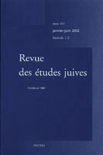
REVUE DES ETUDES JUIVES
Exploring Jewish Identity Through Multidisciplinary LensesREVUE DES ETUDES JUIVES, published by PEETERS, stands as a vital platform for scholarly discourse in the realms of Cultural Studies, History, Literature and Literary Theory, and Religious Studies. Based in Belgium, this journal, bearing the ISSN 0484-8616 and E-ISSN 1783-175X, has been faithfully chronicling research since its inception, with comprehensive coverage spanning from 1967, 1969, and several periods thereafter until 2023. Although categorized in Q4 quartiles across its fields—showing a diverse yet niche presence—it provides an invaluable space for emerging voices and established scholars to explore Jewish studies in a multidisciplinary context. Despite its compact impact factor and Scopus rankings reflecting its emerging status in the academic community, the journal is committed to fostering dialogue on the cultural and historical aspects of Jewish identity, offering a unique opportunity for researchers, professionals, and students to engage with contemporary and historical issues of Jewish significance. As a non-open access resource, it appeals to those seeking rigorous academic inquiry supported by Peeters' esteemed publishing acumen.

Studia Ceranea
Advancing the Frontiers of Cultural ExplorationStudia Ceranea is an esteemed academic journal published by WYDAWNICTWO UNIWERSYTETU LODZKIEGO, dedicated to advancing research in the fields of Cultural Studies, History, and Religious Studies. With an ISSN of 2084-140X and an E-ISSN matching, this journal has been a pivotal platform for scholarly dialogue since its establishment, now enjoying an Open Access format since 2016, which fosters greater accessibility of its articles. Based in Poland, Studia Ceranea has witnessed significant convergence, with publication efforts spanning from 2011 to 2024. The journal's current standing is reflected in its quartile rankings, placing it in the Q4 category for 2023 across Cultural Studies, History, and Religious Studies. Additionally, it sits at rank #1124 in History and #414 in Religious Studies within Scopus ranks, evidencing its role in the wider academic landscape. Researchers, professionals, and students alike are encouraged to engage with this journal as it continues to explore and illuminate critical themes within the humanities and social sciences.

Zutot
Unveiling New Insights in Religious and Cultural StudiesZutot is a distinguished academic journal published by BRILL, focusing on the multifaceted realms of Arts and Humanities, Cultural Studies, and Religious Studies. With ISSN 1571-7283 and E-ISSN 1875-0214, Zutot presents an invaluable platform for scholars seeking to explore innovative ideas and interdisciplinary approaches within these fields. Recognized within the Q4 category for its contributions to contemporary discourse, the journal ranks at the 44th percentile in Religious Studies and the 39th percentile in General Arts and Humanities, underscoring its relevance and the quality of research it publishes. Since its inception, Zutot has continued to facilitate critical dialogue and scholarship, thus acting as a crucial resource for researchers, professionals, and students alike. Its converged publication years from 2001 to 2004 and 2008 to 2024 further demonstrate its ongoing commitment to supporting rigorous academic inquiry.

Quest-Issues in Contemporary Jewish History
Advancing Knowledge in Modern Jewish Historical DiscourseQuest - Issues in Contemporary Jewish History is a pivotal open-access journal published by the Fondazione Centro Documentazione Ebraica Contemporanea in Italy. Since its inception in 2010, this journal has been dedicated to the scholarly exploration of the multifaceted dimensions of contemporary Jewish history, making significant contributions to the fields of history and cultural studies. With an ISSN of 2037-741X, it serves as a vital platform for researchers, professionals, and students alike, providing access to an array of insightful articles and research findings. As of 2023, it holds a respectable Q3 ranking in the History category within Scopus, indicating its growing influence in academia, alongside a rank of #899 out of 1760 in Arts and Humanities – History. This makes it an essential resource for those looking to deepen their understanding of Jewish history in a contemporary context. The journal, with its rich scholarly outputs converging from 2017 to 2023, is based in Milan and strives to foster high-quality research in Jewish studies.
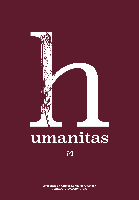
Humanitas-Portugal
Unlocking the Rich Tapestry of Human ThoughtHumanitas-Portugal is a distinguished open access journal published by IMPRENSA UNIV COIMBRA that has been fostering scholarly dialogue since its inception in 1947. With an ISSN of 0871-1569 and E-ISSN 2183-1718, the journal serves as a platform for rigorous academic work in the fields of Archeology, Classics, History, Philosophy, and Religious Studies. Although positioned in the Q4 quartile by Scopus rankings, its commitment to accessibility and knowledge dissemination in Portugal highlights its significance to the academic community. Researchers and students can access articles openly, encouraging a broader engagement with various disciplines. With its convergence of studies from 2018 to 2024, Humanitas-Portugal continues to contribute to the understanding of human culture and thought, making it an essential resource for anyone invested in the humanities.

NOVYI MIR
Advancing Scholarly Dialogue in Eastern European StudiesNOVYI MIR, published by IZD STVO IZVESTIYA, is a distinguished journal that provides a platform for scholarly discourse in the humanities, literature, and cultural studies. With an ISSN of 0130-7673, this journal has made significant contributions to the academic community, particularly within Russia and Eastern Europe. Although it does not currently offer an open access model, its content is revered for its quality and depth, catering to researchers, professionals, and students alike. With a commitment to examining contemporary issues through a literary lens, NOVYI MIR is essential for those seeking to explore the intersection of culture and society. The journal's relevance is underscored by its esteemed reputation in literary circles, making it a vital resource for anyone dedicated to understanding the nuances of Russian literature and thought.